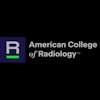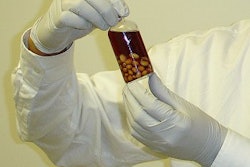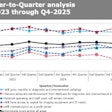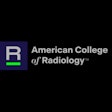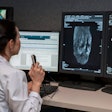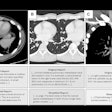Almost everyone has had it: the dream of sitting down to an important exam and not being prepared. Your pen doesn't work, the exam instructions look like gibberish, or the door to the exam room is locked -- and the only relief comes from waking up.
Imaging centers and physician offices may be facing a final exam of sorts with an upcoming accreditation deadline, set by U.S. insurer UnitedHealthcare of Minneapolis. But waking up to the requirements may not promise relief.
A year ago, UnitedHealthcare announced that, based on standards jointly developed by the American College of Radiology (ACR) and the Intersocietal Accreditation Commission (IAC), it would require its participating members to be accredited by March 1, 2008, to receive reimbursement.
The requirement includes CT, CT angiography, MRI, MR angiography, nuclear medicine/cardiology, PET, and echocardiography services that are performed in freestanding outpatient facilities and physician offices. Accreditation will apply to global and technical service claims, according to the company.
In response to its participating members' feedback, UnitedHealthcare is extending the accreditation deadline to the third quarter of this year, giving facilities that have gotten a late start a bit more leeway, wrote Laurie Paidosh, vice president of radiology programs at UnitedHealthcare in an e-mail to AuntMinnie.com.
"Our goal was to get as many physicians and facilities accredited as quickly as possible," Paidosh wrote. "However, we understand that some facilities will require more time to initiate and complete the process."
The extension is good news for those facilities caught lagging, especially since the accreditation process can be expensive, lengthy (as long as six to eight months), and complex, requiring an ongoing protocol of continuing medical education courses and training, as well as electronic and hard copies of phantom images for each device being used.
The decision confirms a general trend across the country as payors seek better quality measures to evaluate their participating members and also to reassure their patient customers, according to Robert Baumgartner, CEO of the Center for Diagnostic Imaging of Minneapolis and current chair of the Association for Quality Imaging (formerly the National Coalition on Quality Diagnostic Imaging Services) of Washington, DC.
"There has been a general concern among payors that not everyone in their networks is delivering the same level of quality," he said. By tying reimbursement to accreditation, "they're trying to raise the bar for imaging quality, whether practitioners are radiologists or not."
Some payors in the eastern U.S. have made ACR accreditation a requirement for reimbursement. However in some western states, such as California, while payors have put ACR accreditation on their list of criteria for "preferred" status among their providers, they've stopped short of requiring it for reimbursement, according to Renee Kavon, vice president of marketing and payor relations for Synergy Diagnostic Services in Sacramento.
"(UnitedHealthcare) is the first in California to initiate reimbursement ties to ACR accreditation," Kavon said. "Other major payors in the market are waiting to see how things go, and are meanwhile assessing their own provider risks in preparation to launch similar requirements."
And since UnitedHealthcare is one of the biggest insurers in the U.S., its decision will have large-scale ramifications.
"Because of its market share, UnitedHealthcare will be viewed as a leader in this respect," Baumgartner said.
Mixed reactions
For those freestanding centers that have kept up with ACR accreditation anyway, UnitedHealthcare's decision isn't a big deal, according to Kelly Gill, chief operating officer at Outpatient Imaging Affiliates in Nashville, TN.
"This is a nonevent for us, since we've been pursuing ACR accreditation since our company was established," Gill said. "(UnitedHealthcare's) requirement is certainly consistent with our own quality standards, and we recognize the value of it."
But for many of the 8,300 freestanding centers in the U.S. that are scrambling to get their accreditation either renewed or started, or for those UnitedHealthcare participants such as physician offices that aren't familiar with this kind of process, the impending deadline is creating some anxiety, according to Steve Renard, president of Synergy Diagnostic Services.
"Some folks are definitely in panic mode," he said. "UnitedHealthcare is not saying they're going to cut your head off in March, but they are saying that come July centers are expected to have proof that the accreditation process is pending."
Connecting reimbursement to accreditation can only improve imaging, according to Dr. Stephen Pomeranz, CEO and medical director of ProScan Imaging in Cincinnati.
"This requirement is advantageous to high-quality providers," he said. "Those centers with substandard equipment will fall away."
Yet accreditation can be a mixed bag, according to Darlene Zase, executive director of Advanced Radiology Consultants in Trumbull, CT. Even if a center with substandard equipment doesn't get reimbursed by a large insurer like UnitedHealthcare, it may still continue to offer services.
"We pride ourselves on doing what's necessary to provide good patient care, and have been seeking ACR accreditation anyway," Zase said. "But will this new requirement really eliminate the folks who are not meeting the standards? Who will check to make sure centers that are not accredited will not continue to practice?"
The accreditation effect
How will UnitedHealthcare's decision -- and other payors, perhaps even Medicare, who follow suit -- affect the overall imaging services market? It may accomplish the goal of improving the quality and consistency of imaging. But it could also slow new business growth as it becomes more challenging to start a new imaging center enterprise, according to Kavon.
"Provider quality can be expected to improve, since this requirement will make sure every facility meets ACR standards," she said. "But it will be difficult for new facilities entering the market. When a new center opens, the ACR accreditation process can take six or more months to complete. During this time the center is unable to provide and bill services for patients covered by payors who require ACR accreditation."
Tying ACR accreditation to reimbursement could also tighten the anti-self-referral squeeze by requiring a certain quality of imaging equipment that nonradiology practices may not have, as well as requiring that staff operating the devices be ACR-certified.
In any case, mandating a particular set of quality standards for reimbursement is only part of an overall effort to crack down on overutilization of imaging, according to Zase.
"It's not that any one thing will discourage inappropriate self-referral, but that a myriad of things will discourage it," she said. "It's great that (UnitedHealthcare) is putting quality indicators in place, thinking about what's good for the patient. Substandard imaging shouldn't be done anywhere."
By Kate Madden Yee
AuntMinnie.com staff writer
February 6, 2008
Related Reading
UnitedHealth to adopt doctor-ranking model: Cuomo, November 21, 2007
UnitedHealth pays $20 mln to settle claim problems, September 7, 2007
UHG debuts imaging services quality initiative, January 15, 2007
Private HMOs cost more to Medicare: study, November 30, 2006
Supreme Court rejects HMOs appeal in MD suit, January 10, 2005
Copyright © 2008 AuntMinnie.com

